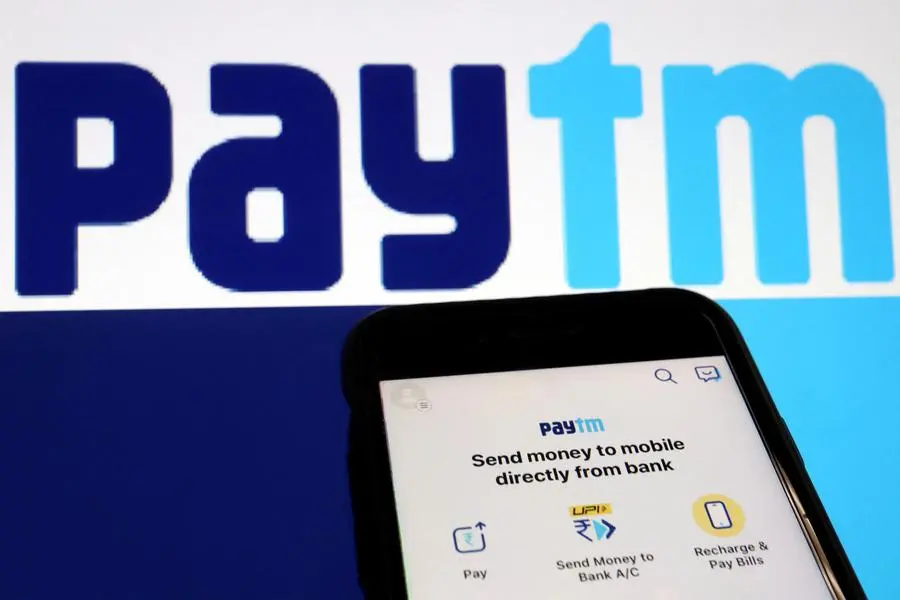PHOTO
India's troubled Paytm is likely to partner with Axis Bank, HDFC Bank, State Bank of India and Yes Bank for processing transactions via the popular unified payments interface (UPI), two sources aware of the development said.
The central bank has asked Paytm Payments Bank, the banking unit of Paytm to wind down its business by March 15, leading to disruption for the popular payment app.
UPI is India's real-time payments system, operated by the National Payments Corporation of India (NPCI), that allows users to transfer money across banks.
The Reserve Bank of India (RBI), last week, asked the NPCI to examine a request from Paytm to become a third party application provider and to facilitate four-to-five banks to act as service providers for it.
"Talks to onboard banking partners are on, and Paytm wants to start this process with large banks that have the technological bandwidth to handle large volumes seamlessly," one of the sources said.
The persons did not want to be identified as they are not authorised to speak with the media.
HDFC Bank, Yes Bank, SBI, Paytm did not immediately respond to Reuters' emails seeking comment. Spokespersons for Axis Bank and NPCI declined comment.
"Paytm is likely to onboard Axis Bank as a banking partner first, and then rope in more banks," the second source said.
The NPCI will take about a month's time to check the bank's technology and related infrastructure, the source said.
Paytm is the third-largest app for UPI payments in the country, processing 1.6 billion monthly transactions, according to data available on the NPCI website. PhonePe and Google Pay are the two largest.
Paytm's users will migrate to an updated UPI handle of the partner bank, the second person said.
"Any business with Paytm will only happen as per RBI's regulatory orders," Prashant Kumar, chief executive officer at Yes Bank said on Monday in an earlier interview.
"If there is clarity on the risks involved and if the business makes commercial sense to us, we have the capabilities."
(Reporting by Siddhi Nayak and Jaspreet Kalra; Editing by Mrigank Dhaniwala)





















